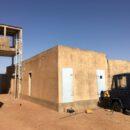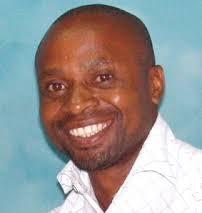Congo elections 2011 – an account by Victoria Crawford, Africa APPG

There is one thing which unites the people of Democratic Republic of Congo today. Men and women, rich and poor, go about their daily lives with their left thumb dyed a deep indigo. It is a sign they have stood up to be counted in their country’s second ever Presidential and National Assembly elections, marked in indelible ink to prevent any would-be fraudsters from re-entering the polling stations.
These elections have been billed a make or break for the Congo, following the largely successful but internationally run elections of 2006, which saw Joseph Kabila take the title of DRC’s first democratically elected President. This time around, the main opposition comes in the form of Etienne Tshisekedi, long-standing opposition figure who refused to run in 2006, claiming those elections were rigged in advance. Nine other candidates also grace the ballot paper, but it is clear from the start that this is a race between two men.
I have come as part of an election observation mission run by AETA (Agir pour des Elections Transparentes et Apaisées), a Congolese civil society network, in collaboration with Eurac (the European Network for Central Africa), which sees around 100 international observers paired with national observers – NGOs who have been keeping an eye on the proceedings across the Congo for months. They have some concerns. High up the list come fictitious polling-stations – those which exist only on paper, or more commonly where a school with eight classrooms is expected to transform into 11 bureaux de vote. They cite examples of problems with voter registration, musicians forced to play as part of campaigns of candidates they don’t support, and violent attacks between members of opposing political parties. To what extent these are isolated incidents is unclear.
Following a training day’s induction in Kinshasa, we are deployed in pairs to the far corners of this vast country: jungle in the north, savannah in the south, mountains in the east and the metropolitan centre in the west, where we meet our local counterparts. I am headed to Katanga Province, a four hour flight from Kinshasa and an important mining area across the border from the Zambian Copper Belt. We spend four days checking out the preparations in Lumbumbashi, the Provincial capital, and Likasi, a smaller city a few hours drive to the west where I will be posted on election day. We visit dozens of polling stations and meet hundreds of people carefully checking the lists of registered voters displayed at each station for their names. At most we are greeted by the President of the Centre, keen to reassure us he is ready and waiting for election day, but some seem less prepared. One church school due to host 26 voting offices had only five tiny classrooms, and worryingly seemed not to care – petit problí¨me. We also come across impressive cases of initiative and a deep commitment to the electoral process; in one particularly drab primary school due to host 14 voting offices, we asked the headmaster how his 12 classrooms were going to cope. He was supposed to have been provided with two tents to make up the extra rooms, but they had run out. Come back tomorrow he said. We did; to find he had appropriated the school office to the cause, and built a second doorway into his largest classroom, dividing it into two.
The voters we came across had equally mixed experiences in the run-up to the election. A small but significant number had received their polling cards but could not find their names on the lists posted outside the polling stations, likely due to a combination of mishaps in the system, and low levels of literacy and limited “˜voter sensitisation’, or public outreach on the election, which meant they struggled to find the right list. Many others were simply hanging out around the polling stations in excited anticipation, often keen to share their favoured candidate. Why Kabila? I asked at one primary school. I suspect the girl who stated “he is not from Kasai”, the rival neighbouring Province from where Tshisekedi hails, was being more honest than those congratulating Kabila on his record on schools and roads. Another at a polling station in the city’s Orthodox Church argued that all Congolese dislike Kabila and that his support was only international. Whatever their views, all were clearly excited about their country’s big day and their opportunity to play a part in deciding its future.
5:15am, Bureaux de Vote Y, Centre de Vote 12238, Likasi.
It is an early start of a long day and orderly queues are beginning to develop, as the polling station staff cart ballot boxes and piles of ballot papers in final preparation. This is where I am to start and end the day, separated by a tour of 12 polling stations in and around the city. At each I introduce myself to the president, sit down next to the witnesses of each of the candidates, and watch what happens.
The voting procedure is simple. At desk one a voter hands over their registration card and displays his hands to ensure no sign of indelible ink. At desk two he is handed the Presidential ballot paper, is sent to a booth to mark it, and then posts it in a sealed bin. At desk three he is then handed the National Assembly ballot paper, goes to a different booth to select this choice, and places the ballot paper in a second sealed bin. At desk four he signs that he has voted – or in the case of those unable to sign, leaves a fingerprint, dips his thumb in the indelible ink to ensure he can’t vote again, and is returned his registration card.
In Likasi, we came across only one attempt to cheat the system all day. Having been alerted by phone that someone had picked up a thick pile of ballot papers in one of the polling stations, we rushed to find out what was happening, but the head of CENI, the electoral commission, in Likasi, had beaten us to it. The offending individual plus the president of the voting office who had failed to prevent it were being ushered into a car and taken away, accompanied by two policemen, to make sure they couldn’t cause any more trouble.
At the count I attended that evening the ballot papers were each held up in turn to the witnesses present, then split into piles for each candidates, which were then totalled. The discussion became heated on a few occasions, with some debate about whether a scribble was really a cross and whether the ballot paper in question was valid, but after nine hours of counting and re-counting, every ballot paper and every signature was accounted for.
My experience alone is no more representative of the Congo than one voter’s opinion, or the events at one polling station, and it contrasts sharply with that of some of my fellow observers. It does however offer a snapshot into a country the size of a continent which is assessing what it is and what it wants to be, and how its people are going to work together to achieve that.
I re-met my friend from the Orthodox Church polling station outside the count. “Remember what I said – tell them in your country that we Congolese don’t like Kabila. On ne l’aime pas.” So that is what I’m doing. But half the voters at Bureaux de Vote Y, Centre de Vote 12238, Likasi, don’t agree.
Victoria Crawford is research co-ordinator, Africa APPG






